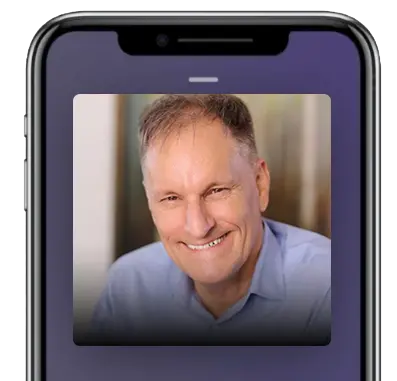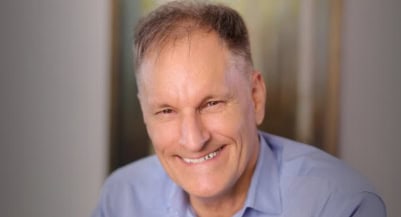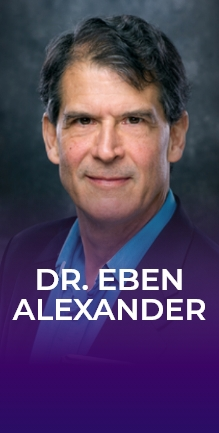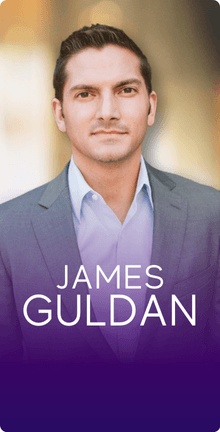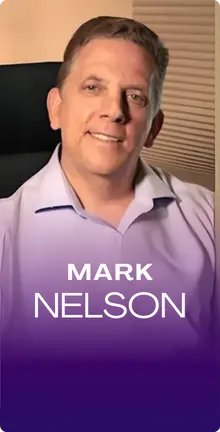In this Episode
- [08:58]Will describes how the group expanded from in-person events to virtual meetings during the pandemic, fostering a larger, more diverse community.
- [12:55]Will introduces the Foundry, a unique aspect of the M.E.T.A.L. Men, which is a confidential space for members to share their experiences.
- [20:27]Will reflects on his vision of aspen trees during his NDE, a powerful symbol of life’s interconnectedness.
- [36:18]Stephan and Will explore the significance of breath in singing and communication.
- [41:31] Will reveals insights from a research project involving 450 M.E.T.A.L. members to uncover common success principles.
- [43:54]Will outlines the eight principles of Masculine Intelligence, explaining their importance in guiding successful men through personal and professional challenges.
- [47:02]Will examines the tension between embracing technological advancements and maintaining balance in personal life.
- [52:45]Will shares ways to connect with him, join the M.E.T.A.L. Men, and access their book, Masculine Intelligence.
Will, it’s so great to have you back on the show.
Yeah, it’s so nice to see a familiar face.
I’ve been a very ardent supporter of M.E.T.A.L. I talked about it a number of episodes here and got some incredible friendships from that men’s group, that brotherhood. It’s an incredible mastermind network of high-caliber men. So, how did you end up being a member of that group? Because that’s how I got to know you, and now you’re running the organization, which is Ken Rutkowski’s brainchild. How did that come about?
You know, you hear stories in the military where everybody’s standing in a line, and they say, “Everybody, apart from Henshall, one step backward. Thank you for volunteering, Henshall.” I kind of got voluntold. What happened was I joined the M.E.T.A.L. Men’s group. For anyone listening, it stands for Media, Entertainment, Technology, Artists and Leadership. That’s where the organization started.
We’re a men’s group because we are better men in the rest of the world when we’re in regular contact and company with other kind, heart-centered men from many different backgrounds. So, just to be clear about that, I became a member in 2009. I met some amazing men like you, Stephan, who I would not have met. For me personally, the most valuable thing in M.E.T.A.L. has been meeting highly successful men from many different heritages, backgrounds and professions and realizing that success defines success—monetarily and personally.
There are many ways to define success, but having a group of men who care about you, who get to know you, who you can trust, and who have not got an agenda is of incredible value in your life. So, between 2009 and 2020, I was a member, and it was a wonderful experience. I met hundreds of guys, and then in 2020, Ken’s management team that was running M.E.T.A.L. with him changed, and he needed some help, so I leaned in and got voluntold to be Ken’s partner in the organization.
We are better men in the rest of the world when we're in regular contact and company with other kind, heart-centered men from many different backgrounds. Share on XIt’s been a fascinating ride. I’ve done eight startups in my life. M.E.T.A.L. is part media subscription because we have a Saturday flagship show, like a private TED for successful guys with three guest speakers every Saturday morning; it’s a Zoom event. Then, we do three in-person events every year. Two of them are more membership-based, and one of them is a conference.
Then, there is this community aspect, which is how you and I met. It’s these three areas of how M.E.T.A.L. works. Each of those products, if it’s a product, is very much linked to something I’ve done before. I ran Focus@Will, which is a media subscription business. I was in a band back in the day, which is all about live events and have you maximized your audience. Then, one of the other businesses, I ran a photography agency here in Los Angeles, which was part of an events business.
So, I’ve been around the event space, the mechanics of running a community and understanding the dynamics, especially of a herding cats kind of community with a whole bunch of disparate super successful guys because I’ve been adjacent to the group for a long time. I started to understand how successful men connect with each other and the real value of meeting another guy you would never normally meet, but having a framework and process to become friends over time.
You and I met through this group, and we’ve hung out in person many times over the years. If we’d met during a normal business structure, we may have liked each other, and I may have said, “Hey, Stephan, do you want to get a coffee somewhere?” We may or may not have had the time to do that, but we wouldn’t have had the framework to get to know each other in a space without any expectations, apart from being interested in similar things and having a similar mindset.

That led me to really lean in at this stage in my life. There’s one more thing, too, which is I had a near-death experience in 2018, and that was a real reset. I had an unexpected out-of-the-blue heart attack and died for 20 minutes. My heart was stopped and brought back by my beloved wife, Melissa, and the medics, and I recovered and have a new profound understanding of what matters and what doesn’t matter.
So one of the things I said when I came back was about men’s work; it’s really important. How do we change things? Get together with other intelligent men in a group that is independent. We don’t talk politics; it’s about friendship. That’s how we can change things. That’s a meandering answer to a very specific question.
Well, we’re going to dig into some aspects of that answer shortly, but I just want to say that it’s been such an incredible community—a family for me. I’ve had great friendships from being a M.E.T.A.L. member for eight or nine years. Actually, a number of guests on the show are M.E.T.A.L. members: Sam Morris, Neil Cannon, Chris Steely, Ken Dubner, and, well, you were a guest in 2017.
There are probably dozens that came out of conversations, and either in the in-person events, because it used to be in person, that’s another thing, too. What a pivot when you guys had to reinvent yourselves during the pandemic, going from almost completely in-person because I would go locally in the LA area to your events every Saturday. I loved it. They were in these theaters. It was such a great experience. I missed when it went virtual, but you made it grow even larger. How were you able to pull that off?
The eight principles of masculine intelligence are curiosity, creativity, integrity, resilience, brotherhood, financial literacy, professional development, and managing work-life balance. Share on XI know the pandemic was a blessing in disguise. That’s a short version of a long story. The advantage of having a group of 2 or 300 guys get together every week—Ken Rutkowski, my partner in crime, you’ve heard us talking about him. He’s as good as it gets as a media host and a talk show—in-person, you develop this kind of ritualistic thing that you do every week on a Saturday morning here in LA.
Ken, by the way, one of his geniuses, is always looking over the horizon. He was the first guy to tell us about Bitcoin. He was the first guy to talk to us about quantum computers. He’s the first guy that talked to us about the pandemic. He just has this ability to see what he thinks will happen. So, he said to us in December 2019, “This pandemic is gonna kick in.” And we’re like, “Nah, mate.” Whoops.
He said, “It is in March.” We were like, “Oh, there will be a lockdown. We’re going to take this into Zoom.” I’d been doing large attendees Zoom calls with the new feature at the time of the breakout rooms. And I’ve been experimenting with social engineering, getting guys into rooms, managing the conversation, and setting expectations. I said to Ken, “I think we can take this during this next period. None of us knew how long the pandemic would go for, right? But temporarily, we can take it online.”
What happened was that there were guys in the community who said, “Oh, you know, I’ve got a buddy in New York. He’d love this. There’s a guy in Canada. There’s a guy in Dubai.” All of a sudden, the existing members started hooking us up with men who were not local. We grew the organization three times during the pandemic. It was fantastic. Then, at the end of the pandemic, “Now, what do we do?”
To be in the platinum group, you’ve got to go through a background check, you’ve got to have a couple of references, and you’ve got a probationary period. We have to figure out who you are.
Because we’ve now got two-thirds of our members not in Southern California, and we’ve got this thriving virtual community. That’s when, as soon as we could, in-person, three events a year. We just did one. That’s called METALPALOOZA, and we all get together, and it’s like an in-person TED with speakers. Mick Ebeling talked, who was the not impossible guy, Peter Hurley, the headshot photographer, and Sasha Strauss, an absolutely brilliant teacher about presentations and many others.
Mick is a past guest on this podcast.
It was very inspiring. Now, it’s a hybrid organization,
Yeah, and it continues to grow. It’s really impressive.
There are two aspects of the group. We have a gold and a platinum group. The gold group, if you are a man, or you identify as a man, you can come on in, pay us the 100 bucks a month, come to our events, and you’re part of the group. There’s the platinum group within the group, where the deals get done.
To be in the platinum group, you’ve got to go through a background check, you’ve got to have a couple of references, and you’ve got a probationary period. We have to figure out who you are. Many gold members aspire to be in the platinum group, and not everybody who applies gets in.
That’s something pretty new, right? I don’t recall having those two tiers.
Yeah, we started that this summer based on demand from the guys. It’s for successful men in their 30s and above. But there are times when you just need to know that you meet a guy and that he is who he says he is.
That’s one of the important roles of a mastermind leader—the curation of the group. Another thing you do that’s unique and special about your group is the Foundry. Why don’t you explain what that is and how you came to dream that up?
I’ve been intrigued by and have been participating in men’s work, generally, for 35 years.
Well, thank you. This is something that’s very dear to my own heart. As you said in my introduction, I’ve been intrigued by and have been participating in men’s work, generally, for 35 years.
Why don’t you define the term “men’s work” for our listener who is unfamiliar with it?
Absolutely. Group work is where 5 to 15 people typically sit around in a circle and talk about things that matter. The most famous example of this, of course, is recovery, Alcoholics Anonymous. That’s a well-known example of group work, where you would go to one of those meetings and then say, “I’m Will, and I’m…” That is a sort of a known version of what group work is.
However, outside of that, there are veteran circles where you can go on a regular basis and get peer support from other guys or other people who are sitting in the circle. In men’s work, there’s a very well-known organization called the Mankind Project, if you’re explicitly interested in this kind of work, they’re a good example. You sit around and talk about your problems, and you can get support. Often, just talking about something helps you.
They’re sometimes industry-based. So, while working behind the scenes in the record business as an engineer producer, there was a group of engineer producers in New York, where I was living and working at the time. We used to get together, and we’d have dinner together. That was kind of group work because we all had the same role in studios all day and night. It’s very interesting. So, peer-driven professional sports groups are another thing.
Back to the Foundry. One of the challenges in any kind of group work is that if you sit in a circle with 12 other people, in our case, guys, and you go around the circle, sharing in the same direction, first of all, you know it when it’s your turn to talk. And it’s a sort of human thing you get nervous about when it’s your time to talk. So you’re not present while the people are talking before you, of course, you’re trying to think about what you will say.
The Foundry was a flash of inspiration that came to me one day when I watched an American football game.
The second thing is, particularly in a group, a lot of men’s work is if there are guys in the group who have very significant trauma, someone who is ex-military, or someone whose wife was killed in a car accident, or someone who’s had a lost someone to suicide, or what’s happening to you is your wife is just mean to you all the time. As you’re sitting around the group listening to these other guys talk, when it gets you, you have nothing like, “Well, I’m here to support. No, you watch me from you. It doesn’t matter compared to what these guys have been through.”
What happens over time is you just have this obligation to go to support these other men, which is a good thing to do, but over time, you are not being yourself. You’re not being heard. The Foundry was a flash of inspiration that came to me one day when I watched an American football game. I was like, “Oh, that’s great. What happens if we run this on a grid? What happens if everybody gets eight minutes to speak, but during your eight minutes, you get the full attention of the whole group?”
The group is directed that no one gives you advice unless you ask. And there are a few other sorts of guidelines around that. Then, coming back to what I was talking about, direction, the person talking hands, the metaphorical talking stick to the next guy. You have no idea whether you’re going to be next or not. These two aspects of the process really changed the effectiveness and the experience of a new guy coming in to talk.
The Foundry is a M.E.T.A.L. internal members-only meeting. We do it online. We do it three times a week, Tuesday night, Thursday morning, Sunday morning, and time specific. It’s a place where you can come and talk about what’s going on top of your mind. But it’s not just trauma and tragedy and bad things. Here’s something I found, Stephan. You’ve been a best-selling author yourself.
As a man, if you achieve a life goal, like you have written a best-selling book or had a number-one song, blessedly, I’ve had a few of those, you achieve this absolute pinnacle of success, you literally have climbed Everest. People don’t know that you will enter a dark, dark phase within two or three weeks. The depression kicks in, the lack of direction kicks in, and you will be completely lost. I’ve seen it happen every time.
The Foundry is a M.E.T.A.L. internal members-only meeting. We do it online. It’s a place where you can come and talk about what’s going on top of your mind.
Part of it is that we are so driven by men. As men, we’re like, “Here’s the target, here’s the target, here’s the target.” That’s all you do. You’re like a monkey chasing a banana. “There’s the banana, there’s a banana.” So, when you catch the banana, what you’re gonna do?” You’ve lost yourself. The Foundry is a confidential space, so I’m not going to mention any names, of course.
But, guys who’ve been readily successful, had a best-selling album, and sold a compafny for $200 million dollars are like, “Oh, so that’s something we talk about.” What about in your own life? Because you’ve been very successful. Has that happened to you?
Not in recent times, but I’ve had a spiritual awakening, so I was shown this kind of simulation of reality that we think is so real. So, I don’t think I think the same way as most people today.
That’s true. I would say that in a very positive way when I describe you.
Thank you. Speaking of spiritual seeing, experiencing, and seeing the code and the matrix, you had that NDE, that near-death experience, and now I know one thing we’ve talked about offline and in the past is your connection with aspen trees. We’ll get back to the Foundry, and some anonymized anecdotal success stories and stuff like that. But for now, let’s go down this tangent around the NDE and how transformative it was for you.
Yeah, thank you. One evening in 2018, June 28th, I was at home. I was not yet living with my now wife; she was just sort of a “coming on the weekend” girlfriend. She had a place in Hollywood. I was living on the West Side of Los Angeles. Usually, on a Monday, she would go back to her place. She’s a counselor and a therapist. She has her clients there. And for some reason, that Monday, she stayed over.
No coincidences.
About 11.30 at night, we were in bed, and suddenly, she kind of pushed me and said, “Are you okay?” She discovered that I had gone blue and I had stopped breathing. I have no recollection of this. I have no recollection of having had a heart attack, which happened. I had something called a widowmaker, which only 2% of people survive, and I had no recollection of two weeks before this, it’s been wiped from my memory, which is a very weird thing. She did CPR for 10 minutes. She called the medics. The medics came. They got my heart started again.
People who survive a widowmaker always have someone do CPR within less than a minute because if the blood stops going to your brain, if you do survive, you’ll have cognitive impairment. So, to cut a long story short, 10 days later, I woke up out of a coma with my friends and family surrounding me in the hospital room, just going, “What on earth happened? They said you had a heart attack.” I was like, “What?”
I was a bit loopy because of the meds that they put you on. It was weird. It was like it was happening to someone else when I was lying there in the hospital bed on a ventilator. I just realized, “Wait a minute, if someone pulls that plug out of the wall right now, oh, literally done,” because it keeps me alive. I can’t breathe on my own. When someone is intubated, when you’re on a ventilator, the goal of the doctors is one thing: to get you off it so you can breathe on your own, so you’re a viable human being again.
When a baby is born, if they don’t breathe, they spike the baby on the butt. If the breath doesn’t happen, there’s no life. So, they tried to extubate me. They tried to pull the tube out twice, and both times, it was a code blue situation where they had to resuscitate you and put it in. It’s kind of traumatic, putting it mildly, if that’s happening to you. This was on day 11, and I was in the ICU at UCLA in Santa Monica.
Every time I visualized the aspen trees, I was calmed. It was extraordinary. It was soothing.
The night before, the third time, I was just lying there and surprisingly peaceful. It’s really surprising, the peace and the calm, like, “This may be it. Okay, I’ve had a good life.” It was really extraordinary. All of a sudden, at that moment, I had this vision of these trees, these trees being aspen trees. Now I’ve got a tattoo on my heart. If you’re listening to this, I’m holding it up to the camera.
This is a forest of aspen trees on my arm in the same direction as my veins. Every time I visualized the aspen trees, I was calmed. It was extraordinary. It was soothing. I’d never had anything consciously to do with aspen trees. I didn’t even know they were aspen trees at the time. I just saw these white trees with thin trunks on the mountaintop. It was just beautiful. I noticed in my visualization that some of the trees have this mark on them, a little bit like an eye shape. It’s a very specific thing. You’ll know what I’m talking about if you see an aspen tree. It’s where a branch fell off, by the way. That’s how they’re formed. So, I kept seeing this vision of the aspen trees. The next morning, they were taking this out.
Were they extubing you again?
They’re extubing me. Actually, what they do first of all is they don’t pull the tube out, but they turn the oxygen off. So, if you can’t breathe on your own and start choking, they turn the pump off so that you’re still breathing through the tube, but it’s your own breath doing it. I realized, “Oh, aspen trees, don’t they all have a common root?” I was like, “I think they do.” I was thinking about the sort of science. The trees are all the same organization, the same organism.
Then, they successfully—the medical team—successfully turned the assisted breathing off. I’m breathing on my own, and then I’m just lying there, breathing through the tube, but breathing on my own. And literally, the medical staff and the friends and family in the room are all applauding, and I’m like, “Okay,” and then they kept me on the machine like that for two more hours, breathing on my own, but through the machine. You can’t talk when you’re like that, but I was like, “Pass me my phone.”
I looked up at my aspen trees. They share a common root. All of the trees have the same DNA. It’s one organism. I was like, “Oh, we humans. We are the trees. What is connected through our breath is God, universal energy, or whatever you call it—the life force. Every time we breathe, we connect to the life force. I just had a sort of, “Oh, man. It’s very simple. You’ve had to believe in anything to connect to God. You just breathe.” You breathe in.
What is connected through our breath is God, universal energy, or the life force.
We’re all connected to this universal energy, God, the life force, Jehovah, whatever you want to call it. There is a thing, the life force, that you connect to through your breath. When I ventilated it out of my mouth and could breathe alone, I had this sort of peace when I understood how it all worked. It’s so beautiful and simple. You breathe in joy. In all religions in the world, we all sing. Humans sing.
You breathe in, connect to God, and then breathe out joyful noise unto the Creator. It’s a thing. I’ve always worked as a musician and songwriter with amazing vocalists, including the guys in Londonbeat, Annie Lennox, and Hall and Oates. I’ve worked with some amazing vocalists. When someone can sing like that, they connect, and then on the out-breath, they connect an audience to it. That was my aha moment.
Later on, of course, I got a tattoo to remind me of the aspen trees. And then, as soon as I could, even within four weeks, I went up into the mountains with my wife, into Colorado. We went to Crested Butte, where the aspen trees are, and I walked around in the forest. It was fantastic.
Wow. Were you able to connect with them and their consciousness?
I wouldn’t say that, but I would say I was able to verify the peace and the calm of understanding how that organism works. If there’s a forest fire, the aspens grow back first. Why? Well, because they’re visible parts of the organism. The aspens can grow through granite rock. The roots are huge. They’re like six feet across. Some of them are bigger than the trees. And then a little shoot pops up somewhere, and then an aspen tree grows. It’s so fascinating.
So that’s my story about the Aspen, Stephan. It’s been a metaphor for the calm and the peace. Meditation is all about the breath. I’ve been playing the didgeridoo recently, which is all about the breath. I want to do a TED Talk one day about this, where the problem for many people about believing in any religion—there’s a sort of suspension of belief—is you have to jump over that hurdle of belief.
Do you believe in XYZ? But if you look in a microscope and see a cell divide into two cells, you’d have to believe in anything. You just watch that happen. It could be a blade of grass, it could be a human being, it could be a dolphin. It could be anything. That’s how life works as a cell, and it goes into two, then four, and so on. But if you talk to biologists, and through M.E.T.A.L., I know a ton of real scientists, and you say, “Why are those cells dividing?”
They’ll say, “Well, as the electrocological differential between this and the chemical imbalance and the osmosis…” And I’m like, “No, no. Why? What’s making that happen? What is it?” And eventually, they come back to “There’s some kind of energy, like a life force, that’s making that happen.” You’re like, “You’d have to believe in anything to be able to observe that there is a life force that’s keeping all this happening.” To go back just full circle to the question, when you breathe in, you connect to that life force. This is my personal view on it.
I have spoken to quite a few other people who had NDEs as I did, and we’ve all come to the same conclusion: you connect to the life force through your breath. If you have a widowmaker like I did, shutting down the brain is like pulling the plug from a computer. You’re instantly unconscious. There’s no tunnel of light, St. Peter and Paul, seeing your friends, or anything else. That doesn’t happen. You’re just gone.
Wow, that’s a profound experience you shared and certainly transformational. So the aspens, as one organism, if a pest attacks one tree on one side of the forest, then all the trees in the forest excrete some sort of protective chemical, pheromone, or whatever, to repel the pest. So, the whole forest is immediately alert because one tree has been attacked. That’s really cool, too.
Many people find peace in the forest, particularly in an aspen forest. It’s tangible, it’s alive, but it’s peaceful.
It’s fantastic. And you talked about the presence of the trees as you were asking me that question. Many people find peace in the forest, particularly in an aspen forest. It’s tangible, it’s alive, but it’s peaceful. You realize there’s a living organism there. It’s fascinating.
Well, trees are really special to me, too, not just aspens. I just love trees, and I do connect with them. I mean, everything is consciousness. There’s nothing that is not of God. There’s nothing independent of God. So, a child’s toy seems to be talking to them because they’re in conversation. The toy and the child could be real because it’s made of consciousness; just like everything else, that thing is sure to be made of consciousness. A desk you sit at is made of consciousness because there’s nothing but consciousness. That’s the universal substrate of universal intelligence.
Yep, it’s much simpler than you think it is. Well, not that you think it is, because I think we’re on the same page here, but it’s much simpler than society would generally have you think it is.
I had a profound experience thanks to a M.E.T.A.L. member I met in a Zoom breakout who ended up saving one of my family members’ lives because I was interviewing him for this podcast. During the podcast, this family member was having a stroke and didn’t believe it and wasn’t going to go to the hospital. What are the odds? That’s because there are no odds, right? As you said, you’re very fortunate that your girlfriend at the time, now your wife, was staying over on Monday night because that was uncommon. Well, there was no other way. It’s a rigged game. This is a rigged game, right? Rigged in your favor. You were not going to die alone. She was going to sustain you until the paramedics arrived. That was just part of the deal, part of the arrangement.
There’s another piece hanging off on what you’ve just said that I don’t often talk about, which is about four months before this happened to me. I woke up. I was on a M.E.T.A.L. hike. We do hikes on a Sunday morning.

Those were so fun. I missed those.
I was on the M.E.T.A.L. hike, and somebody fell and hurt themselves. There was a position on the hike that was able to help them, and it was quite a bad cut. I said to my wife, then my girlfriend, “I think I need to get first aid and CPR. I need to learn this in case. And what would I do if someone went down? I want to find that out.” So she was like, “Okay.” I said, “I found a spot to go and learn first aid and CPR at the Red Cross in Santa Monica.” She said, “Well, I’m coming too.” I’m like, “Okay, why?” She goes, “Well, what happens if something happens to you?” Four months later, after having learned CPR, both of us, she saved my life. It’s a rigged game.
Because it’s all arranged, you co-write this movie script called “Your Life” before you incarnate here. All the wild stuff that happens is not just random. There’s nothing random here. So, when I ended up interviewing Mark Nelson, it just so happened that that was the moment that this family member was having the stroke.
My wife interrupted the interview, slipped a piece of paper to me to ask him about what was going on, and he absolutely nailed it. So yeah, we were able to make sure that she got the help she needed. Amazing. So, M.E.T.A.L. is life-saving, too, as you’ve experienced.
You connect to the life force through your breath. Share on XPersonally, yeah. By the way, I met my wife, Melissa, on a hike through M.E.T.A.L.
Something you said earlier about singing reminded me again of another M.E.T.A.L. member and past guest on the show, Roger Love. He is a voice coach to the stars and famous singers.
Yeah, he’s fantastic.
He explained something really cool. I don’t remember if it’s in the episode or not, but at some point, he explained that people who stutter cannot continue stuttering while they are singing because they have a continuous stream of air going out the whole time, so there’s no room to get caught up in your head because you’ve stopped the breath as long as the breath is going because you’re singing, you can’t stop the breath while you’re singing, so you will not stutter. How cool is that?
That is so interesting.
So, if somebody wants to cure their stutter, they need not to interrupt their breath. They need to work on making a continuous stream so they don’t keep the staccato nature of their communication. They try to imagine—he described it as a yellow stream of breath going out all the time. Keep talking until you are done, and then you will not stutter.
When I went through the NDE, when I went through the heart attack experience, I came out of that with a real commitment to want to make the world a better place.
You’ve reminded me that a singer we used to know and work with back in the 80s called Paul Young had some big hits, and the Londonbeat vocalists were in his band. We knew him. He had a stutter, but he never stuttered when he sang. I presume you could sing it instead of saying it. “Can I get a sandwich, please?”
That’s right. But even if you’re just saying it, if you operate with the breath as if you’re singing it, you don’t have to make it a melody. You can just talk in an ongoing way, and you will not interrupt yourself as long as you continue your breath.
Yeah, the breath is everything. I was really honored in the 80s, at the peak of their success in working with Dave and Annie in the rhythmics. I did a few shows with them. Annie Lennox was the diva in the 80s. She was the biggest rock-pop singer in the world for many years in the middle 80s. Whenever she came out on stage, even if it was an unruly crowd, when you’re in Italy, and there are many people who are unruly in a crowd—excited, when you’re in Dublin, or you’re in some place where chaos is going on.
She would take a breath, and you could look at the audience on the out-breath, and they would be hypnotized. People would be completely transfixed and taken into another realm when she sang. It was an extraordinary thing to see. And now I know what she was doing. As she sang, she was connecting to universal power, God, and people were then connecting to that energy on the out-breath.
This is why great vocalists Pavarotti and Bono think of the great singers you know who can sort of hypnotize and transfix an audience. Why is it happening? What’s going on? Breath. The Creator.
As I said before, there’s nothing but the Creator. There’s nothing but consciousness. So, even in the moments in between breath, there’s still the Creator, and there’s still that connection because we are made of the Creator, made of consciousness. So, there is no separation. That’s all an illusion. One past guest described it as a thin place where the veil is thinner. And for this guy that I’m thinking about, his son had passed, and he would connect with his son in his son’s room.
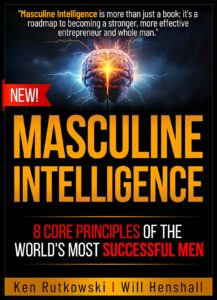
There was a thin place in his son’s room. It was also a particular time, at three in the morning, he’d wake up in the middle of the night and go to that room to connect with his son, and he’d start hearing his son speak to him. He would journal it. He wrote whole books based on these journaling sessions, receiving communication from his son. I think even in-between moments, like in between the breaths, on the in-breaths, or whatever, you can have thin places there too.
I’m in a thin place here. I’m in Israel recording this right now. So, the veil is definitely thinner here. Anyway, I know we’re up at the time here, so if you have a couple of minutes left, you could talk a bit about the Masculine Intelligence book.
I’d love to, yeah, it’s quite quick. You can tell from our conversation that I’ve always been fascinated and intrigued with people. I’m a people guy. As a musician, what are you doing? You’re playing music for people with other people. It’s a band. So, it’s a people thing. When I went through the NDE, when I went through the heart attack experience, I came out of that with a real commitment to want to make the world a better place.
I needed to stop doing trivial things. I needed to stop mentoring people I liked but wasn’t achieving much. I was wasting a lot of time before that, and that’s when I decided to lean in with Ken and to build this men’s group of successful men, and build that out and create community and create a system and a process and a framework for men like you and me to meet and connect.
I’m equally left and right brain. I’m equally a scientist and a creator. So, I wondered, “Do successful men have anything in common? What principles? Are there any principles that you and I have in common?” I put together a research project with 450 M.E.T.A.L. men from different backgrounds, countries, etc., from guys who work in space, robotics, finance, physicians, futurists, and all kinds of guys.
I wanted to know what we have in common. What are the general principles? The beauty of AI tools now is that you can do analysis, which you could never do before, with two types: quantitative and qualitative analysis. With AI, you can feed in four terabytes of open-ended data and say, “What are the common principles that these guys are all talking about?” And we did. I feel like I’m on David Letterman’s show back in the day. “Here’s my book.”
We don’t give up easily but know when to hold and unfold things.
So we have a book in the M.E.T.A.L. group. It’s available on the on the M.E.T.A.L. Men. You just go to metal.men, and you can see this. We call it Masculine Intelligence. I’m going to go through the eight simple principles.
The first one: we’re all curious. If you get on a plane and they say, “Please put your cell phone or laptop off,” but there’s an in-flight magazine in front of you, the chance of you picking that up and going to curious be like, “That’s interesting.”
Next, we’re all creative. When you’re curious, you’re like, “Oh, that’s interesting. I wonder what I could do with this piece of information.” There’s a new type of apple that no one’s eaten before. That’s a combination of an apple, a pear and a gooseberry. I don’t know. I’m making this up. I wonder if that would grow in this part of Canada, where you can’t grow anything. I’m just making it up. You’ll see the process here, right?
The third thing is that we’re resilient. We don’t give up easily, but we also know when to hold and unfold them. So, it’s about the reality of resilience.
The fourth one is integrity. We all have integrity. I’m talking from a man’s perspective here. I’m talking about metal.men. That’s our website. But this is true for any human being. You’ve got to keep your word to your customers.
The fifth one is brotherhood. You’ve got to have other men around you who are not random. What I mean by that is they’re not like the fathers of your friends, kids or your neighbors. They can be nice people to hang out with, but these are actionable, intentional men friends who can keep you on the straight and narrow.
The next thing is financial literacy. It’s not about being a whiz on the stock market or being a crypto bro, or you just have to understand how value is provided for goods, services, and information. You just understand how you get money, keep and grow money. You’ve got to understand it. Don’t be scared of it. It’s energy. Money is energy.
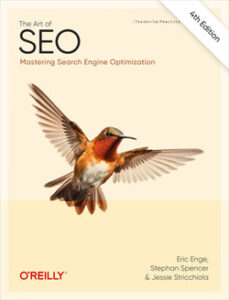
The seventh thing is, we’ve all had professional development as an important part of our careers. So we’ve had coaches and mentors. We’re reading. You’re keeping up to date. Your search engine optimization world has the shortest half-life of any industry I can think of. It’s out of date tomorrow or 20 minutes from now, and it’s all changed.
And yet, I publish books.
And then the last thing is probably the most important. Remember, these topics came from a detailed, open-ended conversation with 450 successful men. The last thing is a work-life balance. Understanding how a work-life balance should work has to do with health and wellness and balance, generally, in the rest of your life. We’re at a point where screen life and real life, screen time and home time, screen time and human time are at an accelerating rate of change.
AI is changing everything, and we haven’t even got to quantum computers yet, meaning everything changes again, the first quantum service that will be out imminently. IBM already has this out working. It will be a million or 10 million times faster to do stuff. There are huge changes here.
So, as successful men, we must keep an eye on what’s happening in the technology, screen time, and real-time. You’ve got to slow down and take a breath. Be present. Sit at dinner. Put your phones away. Hang out with your kid. Your kid’s only gonna be six once, asking those crazy questions, “Why.” We have this crazy duality that we as successful men have to deal with—on the one hand, keeping up with changes, professional changes, societal changes, all of these things, and at the same time, needing to slow down and smell the roses and just talking to other guys about, “How the hell are you managing to talk about that? What’s the secret? How do you handle that stuff?”
So, those are the eight principles: curiosity, creativity, integrity, resilience, brotherhood, financial literacy, professional development, and managing work-life balance. Those are the eight principles.
You came up with that through research. Were there some good things in particular that strike you about how that research was done or how those principles came out of the research that you want to share?
That’s the start of a much longer conversation. The short version of it is we asked open-ended questions to 450 guys about, “What do you attribute your success to?” We didn’t mention we were looking for eight principles. We were just like, “What’s made you successful? Tell us more about that. Tell us about a time when things went south and terribly wrong. What was that like? Talk to us a little bit about your family and your personal life. How do you manage stress at work?” There were a lot of questions and no checkboxes, and this is all about “tell us stuff.”

Then, we were able to ask the AI engines. In particular, there were a couple of Claude updates that really helped us with this. We were able to say, “With all of this data, are there any general principles that came out?” And these eight things came out loud and clear. When we looked at the data through another tool and looked at the same, we asked it different questions—you know how. You know you’re a data guy; you have to look at the data through five or six different ways to make sure the data is giving you the right message.
We could have done it a few years ago, but I’d had to have hired a team of core researchers to do that at a vast personal cost. It’s interesting. Once you become conscious of the principles, I’ve got to the point where when I’m doing something, I’m like, “Is this fitting into one of the principles?” And it always does. I’m learning about my career or a potential career, or I’m curious about this thing. My favorite M.E.T.A.L. speaker of all for years and years and years was a weird bat scientist. Were you here when he was talking?
No.
This guy is talking about bats and how important they are and how, particularly in some US cities, they have a fundamental role, because they got a lot of bad press because of all of the COVID stuff. Bats have a huge role in managing insect populations and other things. So he said, “If you buy this bat house on Amazon, you can put it in your yard, and if you’ve got bats, they’ll come and stay there.”
You’ve got to have other men around you who are not random.
Of course, I went straight on Amazon and got myself a bat house. But I live in Culver City in West Los Angeles, and no bats are here. Never have been. The bats are in the hills, which are about two miles over there. So I’ve got a bat house with no bats in it, but that’s just a good example of curiosity and creativity. “I can get myself a bat house.”
Yeah, that’s awesome. Well, you’ll have to find a new home for your bat house, somebody who lives on the hill.
If anybody is listening, what’s a bat house? I got one in the shed. I never used it.
That’s a great way to end our conversation. So if our listener wants to get the book and if they are a man and want to join M.E.T.A.L., where do they go?
Metal.men, simple enough. We’re on all the socials and all of that stuff. Twenty percent of our new members come in from our members’ wives and girlfriends, recommending M.E.T.A.L. to their wives and go to their girlfriends or husbands. So we’re better men, provably so when the women think so too.
Yeah, I’ve certainly recommended M.E.T.A.L. to many men over the years.
Thank you. Well, it’s a pleasure to see you again, Stephan. Thanks for the call.
And thank you, listener, for being part of this community and a force for good in the world. I hope that you continue to do so. Have a great week, and be the change you want to see in the world. We’ll catch you in the next episode. In the meantime, have a fantastic week. I’m your host, Stephan Spencer, signing off.

